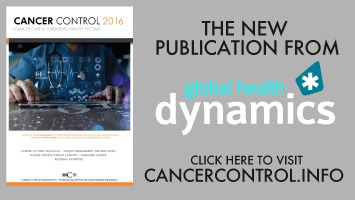Antimicrobial Resistance (AMR): stressing the role of the health industry
Martin Bernhardt, Head of Public Affairs Global Health, Sanofi
“By 2050, the death toll could be a staggering one person every three seconds if AMR is not tackled now” (1) .
AMR, one of the most pressing global health issues, has to be tackled globally and through multi-sectoral actions, as the AMR fight spans across human and animal health, welfare, economics and policy (2). The pharmaceutical industry, among the other stakeholders, is strongly engaged through the Industry Declaration (3) and the Roadmap (4), both signed in 2016. In 2017, the AMR Industry Alliance was created to monitor the progress made on these two initiatives and tracks the engagement of life sciences companies, while enhancing coordination and unifying the industry voice.
The signatories have committed to work on reducing AMR by improving access to high-quality antimicrobials, diagnostics and prevention tools; to invest in research and development (R&D) in order to reinvigorate the AMR-related health products pipeline; and to reduce its manufacturing environmental impact, with development of cross-industry initiatives for required technical standards.
As a health journey partner, Sanofi has an established history in the fight against infectious diseases and remains committed to addressing this global health challenge.
Over the last few years Sanofi has been actively supporting the initiative to promote the use of rapid diagnostics and preventive measures to reduce inappropriate prescription and preserve the medical value of current antimicrobials. The company develops new solutions, especially in the alignment of its promotional activities with the appropriate use and through the creation of public awareness campaigns. With the Bact’Attack application, an interactive game developed with the scientific support of the francophone infectious diseases academic society, it sensitizes the youngest to the appropriate use of antibiotics.
To reinforce and accelerate the anti-infectives’ R&D, Sanofi has entered into exclusive negotiations with Evotec AG in March 2018 to create a new open innovation platform. This joint initiative will bring together more than 150 scientists. For antibiotic manufacturing, a strict management programme to reduce the environmental impact of production sites worldwide has been put in place.
Sanofi is also committed to a key long-term strategy for prevention that reduces the use of antibiotics and the spread of resistant strains. Vaccination is an important part of this approach by preventing bacterial infections (such as Pneumococcal pneumonia) or viral infections (such as influenza for at-risk patients), which reduces inappropriate antibiotic prescriptions. Vaccination, and more broadly, prevention policies should constitute a central pillar to combat resistance as complementary tools to the responsible use of antimicrobials.
These actions stress the commitment and the critical role of the health industry in the fight against AMR. The AMR Industry Alliance calls for “a greater involvement of the private sector in the international debate” to build a concrete global plan of action (5) to face these challenges at the scientific, regulatory, and economic levels.
References
1. Tackling Drug-Resistant Infections Globally: final report and recommendations. The review on Antimicrobial Resistance, Chaired by Jim O’Neill. May 2016.
2. WHO, WIPO, WTO Joint Technical Symposium on Antimicrobial Resistance: How to Foster Innovation, Access and Appropriate Use of Antibiotics. 2016.
3.https://amrreview.org/sites/default/files/Industry_Declaration_on_Combating_Antimicrobial_Resistance_UPDATED%20SIGNATORIES_MAY_2016.pdf
4. https://www.amrindustryalliance.org/industry-roadmap-for-progress-on-combating-antimicrobial-resistance/
5. “Delivering the SDGs: Focus on Industry’s Actions in the Fight against AMR”, Write-up. 18 January 2018, Geneva.



